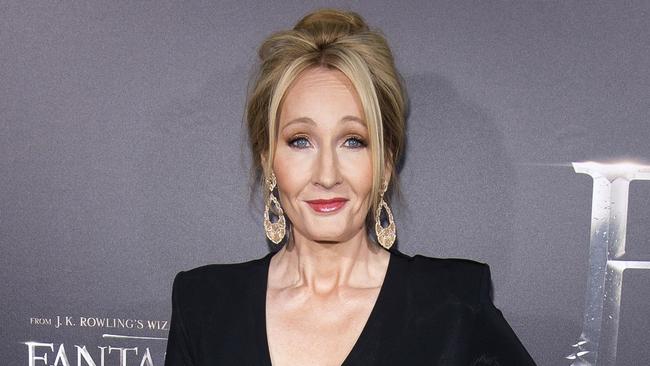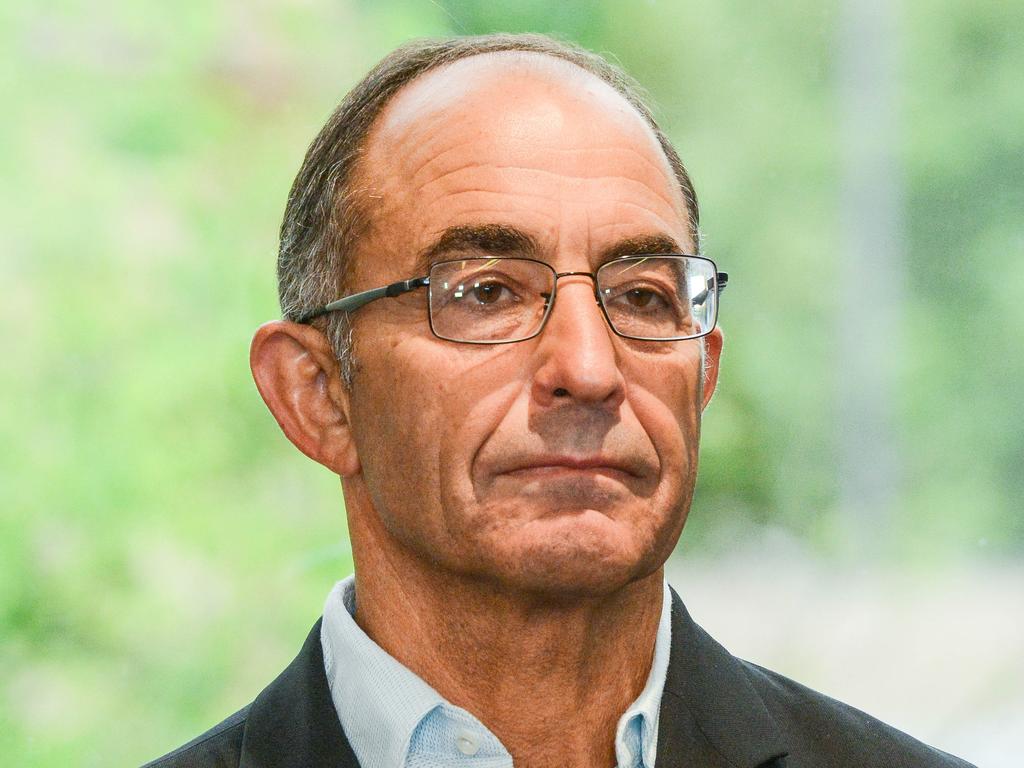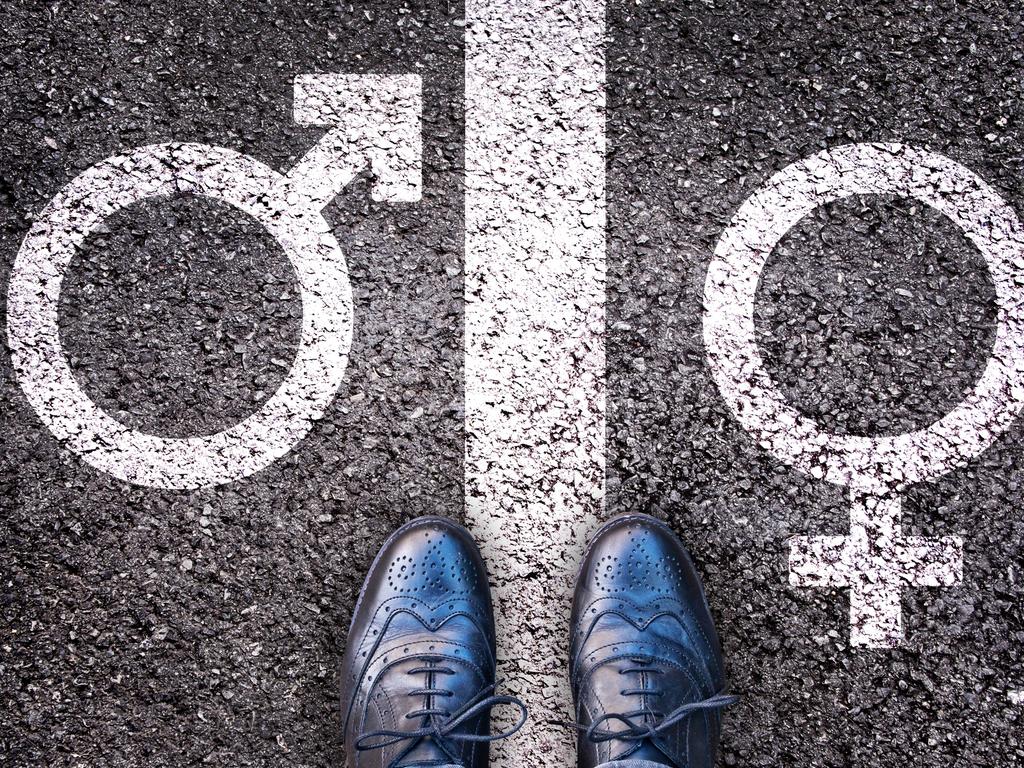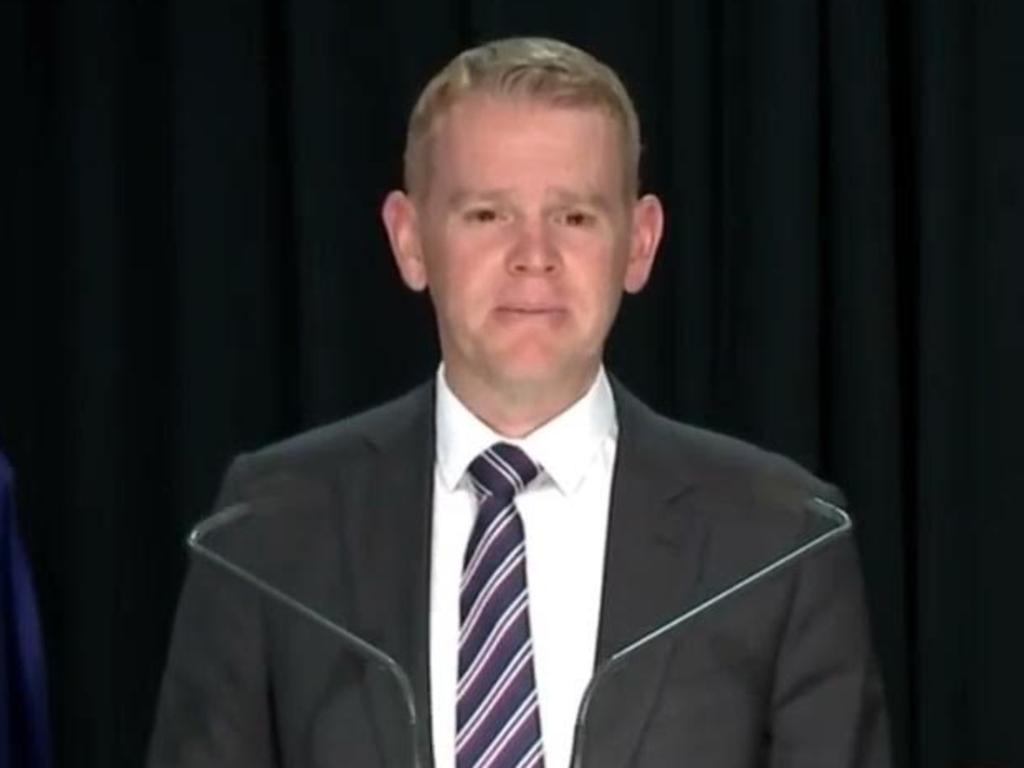JK Rowling knocks back SA Chief Justice on preferred gender pronoun edict
JK Rowling has swiped back at South Australia’s Chief Justice Chris Kourakis in an ongoing feud about the use of preferred gender pronouns in courtrooms.

JK Rowling has swiped back at South Australia’s chief judge in an ongoing feud about the use of preferred gender pronouns in courtrooms, claiming “millions of women” are losing faith in the justice system, and will be “traumatised” if forced to refer to their male attacker as a woman.
The Harry Potter author and women’s rights campaigner late last week retweeted an article published in The Australian that referred to a practice note issued by Chief Justice Chris Kourakis, saying it was a “matter of respect” to address parties to a case by their chosen pronouns, and integral to “ensuring public confidence in the proper administration of justice”.
“Asking a woman to refer to her male rapist or violent assaulter as ‘she’ in court is a form of state-sanctioned abuse,” Rowling wrote in her original tweet. “Female victims of male violence are further traumatised by being forced to speak a lie.”
On Monday, Chief Justice Kourakis batted away Rowling’s criticisms, saying she “misunderstood the protocol” and that the practice note “does no more than allow lawyers and others to inform the court of the correct pronunciation of their name and their preferred gender pronoun so that proceedings are conducted respectfully.”
Statement from the Honourable Chris Kourakis re Practice Note about pronunciation of names and gender pronouns (https://t.co/WbjS3h1Xwy) pic.twitter.com/LeY6DZRuME
— Courts (@CourtsinSA) November 6, 2023
“A victim of crime would never be asked to address an accused person in a way which caused the victim distress,” he said. “I would prefer that social media commentators took the time to properly inform themselves before pressing the send button, but my only concern is to assure the South Australian public that Ms Rowling’s anxiety is completely unfounded.”
However, on Tuesday morning, Rowling hit back at the response, and maintained the practice note could have devastating impacts on women traumatised by sexual assault, and said as a result of the edict “a woman may now be obliged to listen to court officials asserting they were raped or beaten by a fellow woman.”
“The Honourable Chris Kourakis has issued a statement referring to my ‘anxiety’ about the use of female pronouns for men standing trial for violence against women and rape. He states that ’a victim of crime would never be asked to address an accused person in a way which caused the victim distress’,” she wrote in another tweet.
“That assurance is welcome, although I note that he’s addressed the matter only after it was raised publicly. No such exemption is mentioned in the Practice Note, which takes the ideological position that the ‘use of preferred gender pronouns is a matter of respect’. The natural inference is that a woman would be considered guilty of disrespect if she, alone in the courtroom, described her male attacker as a man, while all court officials were addressing and describing him as a woman.
“This is not a hypothetical situation. The judge will be aware, if he‘s informed himself – as he implies I have not - that I’ve already cited an example where a 60-year-old woman was violently assaulted by a 26-year-old trans-identified male. She was chided by the judge for displaying ’bad grace’ by not using her attacker’s preferred pronouns.”
The Honourable Chris Kourakis has issued a statement referring to my 'anxiety' about the use of female pronouns for men standing trial for violence against women and rape. He states that 'a victim of crime would never be asked to address an accused person in a way which caused… pic.twitter.com/43tdCboOc6
— J.K. Rowling (@jk_rowling) November 6, 2023
Rowling said the practice note failed to acknowledge that in sexual crimes committed by men against women “there is a clear clash of rights.”
“The woman has a right - indeed, a legal duty - to speak truthfully about the male violence/sexual violence to which she was subjected,” she continued.
“Meanwhile the Practice Note says that court officials should respectfully use female pronouns for the attacker if he says he identifies as a woman. The likely effect on a traumatised woman of hearing her attacker addressed and described as a female by the court is neither mentioned nor addressed in the Practice Note. Respect, it seems, goes only one way.
“Millions of women are losing confidence in judicial systems that have adopted an ideological position with which they do not agree. In the very place where they go to seek justice, a woman may now be obliged to listen to court officials asserting they were raped or beaten by a fellow woman.

“Such women are not merely ‘anxious’, they are furious, about the apparent inability of certain men, judges or not, to understand how dystopian this situation seems to those of us who have suffered male sexual violence.”
In a comment left on the thread, she said: “I for one am deeply grateful for the men loudly opining on things that by definition can never affect them. It‘s very important we hear their views, because otherwise it would just be shrill, hysterical women talking.”
South Australia followed the lead of Victoria and Queensland as jurisdictions that this year released practice notes requiring court attendees to refer to parties by the pronouns they indicate being most comfortable with, such as they/them.
The SA parliament became one of the last in the country to adopt language that is neutral on gender and sexual identity.







To join the conversation, please log in. Don't have an account? Register
Join the conversation, you are commenting as Logout